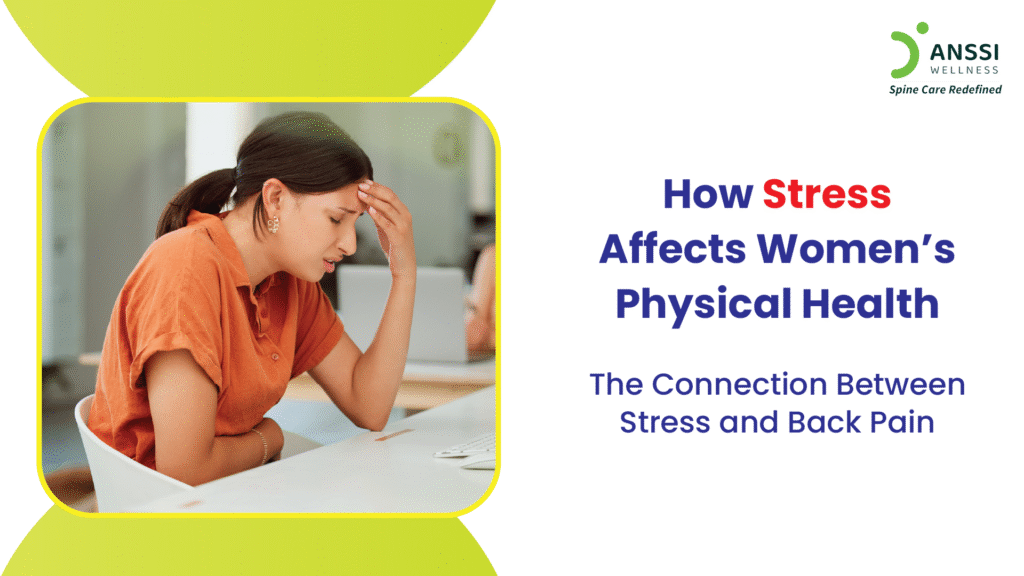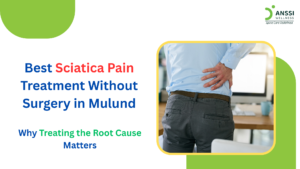Stress is often talked about as an emotional state, which includes feeling overwhelmed, anxious, or tense. But what many women don’t realise is that stress is not just “in the mind.” It creates real, measurable physical changes in the body, and for women, these changes can manifest in unique and sometimes more severe ways.
From chronic back pain to hormonal disruptions, stress can silently erode overall health if left unaddressed. Understanding the connection between stress and physical well-being is key to preventing long-term damage and living a healthier life.
The Mind-Body Connection: How Stress Translates into Physical Symptoms
When you encounter a stressful situation, whether it’s a demanding job, family responsibilities, financial pressures, or even social expectations, your body responds with the “fight or flight” reaction. Hormones like cortisol and adrenaline surge into your bloodstream. While this is helpful in emergencies, long-term exposure to these stress hormones disrupts the body’s natural balance.
Chronic stress causes muscle tension, reduces blood circulation, increases inflammation, and weakens the immune system. It also affects how your body processes nutrients, making you more prone to fatigue, pain, and illness. Women, due to hormonal cycles and caregiving roles, often experience a double burden, mental strain combined with physical wear and tear.
Stress and Back Pain in Women
One of the most common physical manifestations of stress in women is musculoskeletal pain, particularly in the neck, shoulders, and lower back. When you’re stressed, your muscles tend to tighten subconsciously. If this tension persists, it reduces blood flow to the affected areas, leading to stiffness, soreness, and pain.
For women with pre-existing conditions like spondylitis, herniated discs, or sciatica, stress can make symptoms worse. Poor posture, often a result of stress-driven fatigue, adds extra strain to the spine. Over time, this can lead to chronic back pain that disrupts work, home life, and sleep.
Other Physical Effects of Stress on Women’s Health
Stress doesn’t stop at back pain; it impacts nearly every system in the body.
- Digestive issues: Stress alters gut function, leading to problems like irritable bowel syndrome (IBS), acidity, bloating, or indigestion.
- Hormonal imbalance: Women may experience menstrual irregularities, worsened PMS symptoms, or even fertility challenges due to stress-induced hormonal disruptions.
- Migraines and headaches: Constant stress tightens scalp and neck muscles, triggering tension headaches or migraines.
- Cardiovascular strain: Elevated stress levels increase blood pressure and heart rate, raising the risk of heart problems.
- Weakened immunity: Chronic stress reduces the body’s ability to fight infections, making women more prone to colds, flu, and other illnesses.
Managing Stress for Better Physical Health
The good news is that stress and its physical consequences can be managed effectively with consistent lifestyle practices.
Balanced Diet
Eating nutrient-rich foods like leafy greens, whole grains, lean proteins, and omega-3 fats supports hormonal health and immunity. Avoid excessive caffeine and sugar, which can worsen anxiety and inflammation.
Regular Exercise
Activities like walking, swimming, and yoga not only improve muscle flexibility and posture but also release endorphins, natural chemicals that counter stress hormones.
Quality Sleep
Stress often leads to poor sleep, and poor sleep worsens stress. Maintaining a consistent bedtime routine and creating a calm sleeping environment helps break this cycle.
Mind-body Practices
Yoga, meditation, and deep breathing exercises activate the body’s relaxation response, lowering heart rate and reducing cortisol levels.
Professional Support
If stress is causing chronic pain or mobility issues, seeking specialised care can help to address the root cause of back pain.
The Role of Non-Surgical Treatments for Stress-Related Pain
Many women live with stress-induced back pain, believing it’s “just part of life.” But ignoring it can lead to worsening spinal conditions. Advanced non-surgical spinal treatments can help relieve pressure on spinal discs, restore mobility, and promote healing, without invasive procedures. Combined with stress management techniques, these treatments can offer long-term relief and improved quality of life.
About ANSSI:
ANSSI Wellness focuses on improving the quality of life for patients suffering from spinal issues, aiming to provide relief where other conventional treatments have failed. Through advanced Non-Surgical Spinal Decompression Treatment, ANSSI is committed to helping patients avoid surgery and recover in a safe, effective, and compassionate environment.
Connect with ANSSI Wellness on LinkedIn, Instagram, and Facebook for expert guidance.




